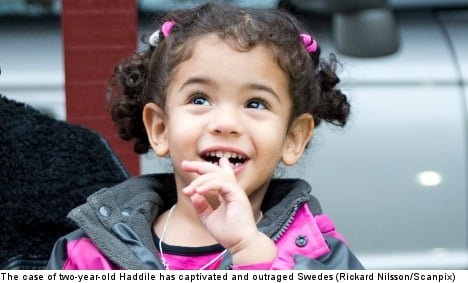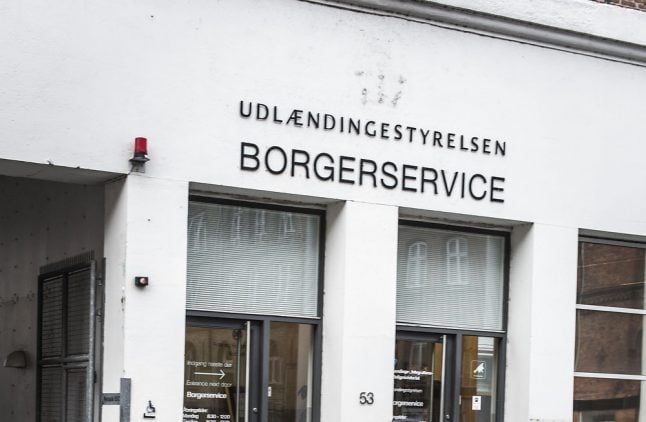“The rationale and the goal is to arrange a reunification between Haddile and her biological parents. In addition, we can ensure that Haddile’s foster family can support Haddile during this process,” Swedish Migration Board (Migrationsverket) general counsel Fredrik Beijer said in a statement.
The case of two-year-old Haddile, who was abandoned by her mother shortly after her birth and then allegedly abused by her stepfather before being taken in by foster parents, sparked outrage among Swedes when news of the case emerged in September 2012.
The girl’s mother, who is Algerian but has French citizenship, disappeared 20 days after giving birth at a hospital in Lund in the south of Sweden.
Haddile’s stepfather took care of her when the mother disappeared but he was accused of abuse after the baby girl was admitted to hospital with serious brain damage at the age of four months.
The child then ended up in foster care and her foster parents have said they are willing to adopt her.
But when the Migration Board tried to deport Haddile to France to reunite her with her mother, tens of thousands of Swedes signed a petition condemning the move, prompting the agency in October to delay the deportation decision.
As Haddile had been born and raised in Sweden, only knew the Swedish language, and had bonded with her foster family in southern Sweden, many questioned whether deporting her was in her best interests.
In addition, her foster parents had expressed their interest in adopting her.
In November, a DNA test revealed an Algerian couple as Haddile’s birth parents
According to the Migration Board, it’s “important that Haddile is given the opportunity to get to know her parents, something that both social services in Lund and her foster parents are working toward”.
TT/The Local/dl




 Please whitelist us to continue reading.
Please whitelist us to continue reading.
Member comments